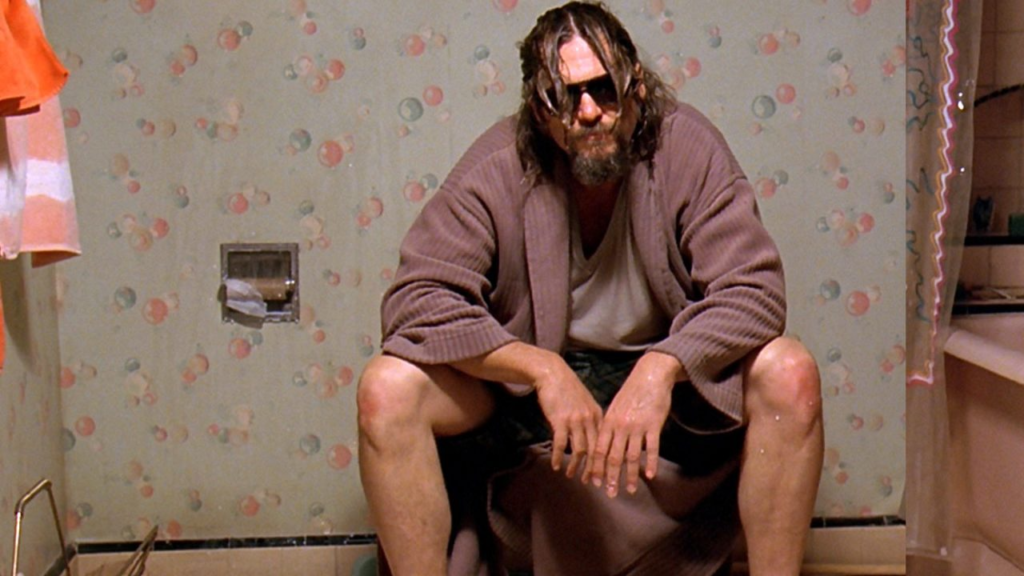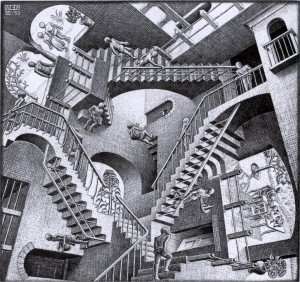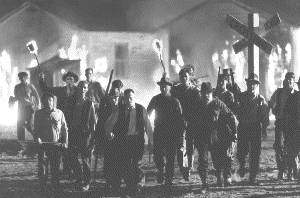As I’ve mentioned before, my mom emigrated from El Salvador. She’s been a US citizen for decades now and has never regretted her decision to leave Central America.
We all know, of course, that the United States is a nation of immigrants (ok, not all of us know that).
Still, the only reason that this nation exists as a major world power is because, over the centuries, millions of people, originating from just about every country on Earth, took huge gambles and endured hardships to come here for a shot at a better life.
It’s the American Dream, right?
Well, maybe that’s no longer true.
You see, a recent article in Bloomberg asked the completely logical question “Why do Americans stay when their town has no future?”

Yes, the article is a look at our favorite fellow citizens — the white working class — and an examination of why they refuse to leave their dying small towns in search of better opportunities. After all, they are the descendents of hearty immigrants who crossed oceans for a new life. So why do they insist on sticking around decrepit mill towns and desolate farm communities, when in many cases, all they have to do is drive to another part of their home state?
The article, which makes for extremely depressing reading, quotes one low-income blue-collar worker as saying, “The American Dream is kind of to stay close to your family, do well, and let your kids grow up around your parents.”
Personally, I found that statement jarring. The article’s writers apparently agreed, calling the quote “a striking comment” because of the fact that “not that long ago, the American Dream more often meant something quite different, about achieving mobility — about moving up, even if that meant moving out.”
Let me mention here again that my seven cousins and I grew up together and were tighter than many nuclear families. That’s common among Latino families. In adulthood, we’re still close, but many of us have moved to other states to pursue the best lives for ourselves. Right now, we’re scattered around the country. In spite of having stronger bonds than most families (not a boast, just the truth), we also knew that all of us living in the same city for our entire lives was unlikely. Our parents came from other countries, so the concept of moving just wasn’t scary to us.
Contrast that to the residents of rural Ohio profiled in the Bloomberg article. They seem petrified of ever leaving their bleak environs. And this reluctance to move is “all the more confounding given how wide the opportunity gap has grown between the country’s most dynamic urban areas and its struggling small cities and towns.”
Economists are perplexed at this phenomenon. But keep in mind that these are the same people who wondered why so many Americans threw logic out the window during the Great Recession and held onto their underwater houses. One would think that economists would now have plenty of proof that Americans don’t make purely objective financial decisions and that emotions play a huge part in their behavior.
So I guess I’m saying that maybe it’s the economists who are clueless here.
In any case, “Americans have grown less likely to migrate for opportunity.” The statistics back this up. We see that “fewer Americans moved in 2017 than in any year in at least a half-century. This change has caused consternation among economists and pundits, who wonder why Americans, especially those lower on the income scale, lack their ancestors’ get-up-and-go.”
We would be remiss if we didn’t acknowledge that the situation has “a stark political dimension, too, given how much Trump outperformed past Republican candidates in those left-behind places.”
What many experts don’t want to admit is that the fear of moving is related to the fear of change, which in turn is related to the fear of immigrants, and so on down the scale of anxiety. The basic factor here is the terror that the white working class feels about a changing world, and its members’ strong sense of entitlement that they never have to change a damn thing in their lives because everything must to be altered to maintain their status.
Many people in these depressed areas feel that America owes it to them to make their towns boom again, regardless of the cost to the rest of the country. However, “it’s hard to argue that, say, a town that sprang up for a decade around a silver mine in Nevada in the 1870s needed to be sustained forever once the silver was gone.” That would be ludicrous. But “if all of southern Ohio is lagging behind an ever-more-vibrant Columbus, should people there be encouraged to seek their fortunes in the capital?”
Um, yeah — they should.
In essence, “America was built on the idea of picking yourself up and striking out for more promising territory.”
What’s changed?
Only the specter of crippling fear.














